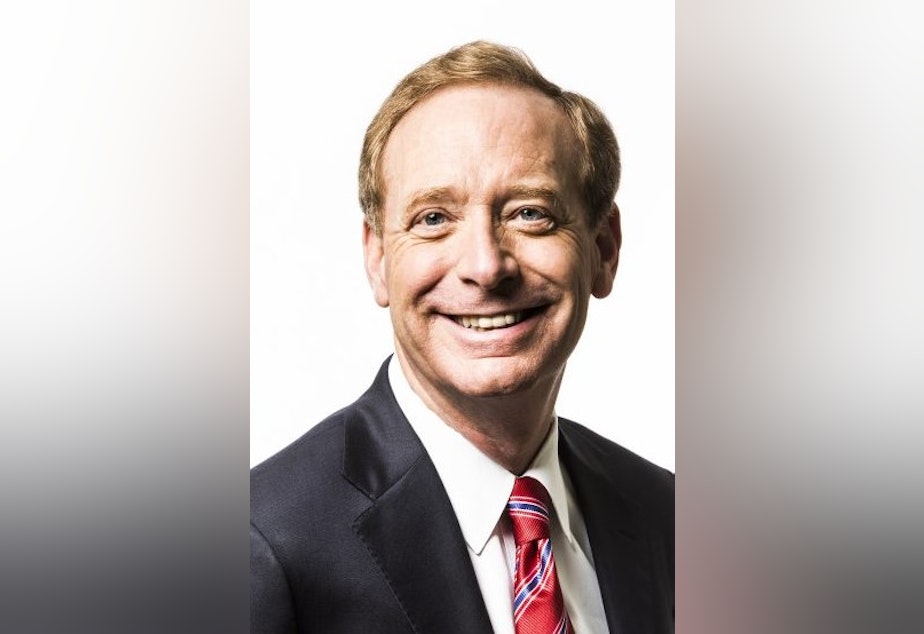Note to Amazon: Microsoft president says companies do have a responsibility to their cities

Jobs are not enough. Microsoft president Brad Smith says companies have responsibilities toward the communities where they prosper.
Smith was speaking at Seattle University about big technology companies and corporate responsibility.
Earlier this year, Microsoft pledged $500 million for affordable housing in the Seattle area to help the region with its housing supply crisis. When asked why Microsoft’s sense of responsibility was different from Amazon’s, Smith initially replied: “You’ll have to ask Amazon.”
But journalist Joni Balter, who was co-moderating the event, pressed him further, asking him about the aftermath of Seattle's conflict with Amazon last year over a head tax to cover some of the cost of the city’s homelessness crisis.
Smith said he did not think a tax on jobs was the right solution.
"But some solution is needed," he continued. "And I think what was a bit disconcerting to us what that that proposal was defeated but nothing else was presented in its place.”
Sponsored
And, he added: “I do think that the business community and those who benefited from the local community's support, yeah, have a measure of responsibility to devise proactive solutions and advance them."
That, Smith said, is what Microsoft did when it announced its housing investment in January. "I certainly think there’s plenty of room for other public policy proposals and there’s plenty of room for more people to do more," he said. "And I hope more people will do more."
Smith said he wasn't telling Amazon how to behave — and he said companies acted differently at different points in their life cycles.
"Different companies have different styles,” he told the audience. “We don't tend to try to lead by hitting other people over the head. But I think there is an opportunity and there is a need for the business community to do more."
Smith said the housing units created by Microsoft’s investment would amount to only a fraction of the total regional need, which he said amounted to 300,000 housing units.
Sponsored
Last spring, Amazon threatened that it would change its plans to create jobs in Seattle if the head tax passed — specifically that it would consider altering its plans to fill two office towers with employees. Although Seattle council abandoned the proposed tax on employment, it was confirmed this week that Amazon had abandoned plans to occupy one of the office towers at Rainier Square.
Amazon’s keystone commitment to solutions for homelessness is its investment in Mary’s Place, a homeless shelter it is integrating into its own campus. But in the aftermath of the head tax debate, Amazon made no public announcement that it had made additional commitments to housing and homelessness. It made no alternative public policy suggestion.
Asked for comment on this story, Amazon restated its long term commitments to homelessness and its $4 billion investment in South Lake Union and Downtown Seattle.



